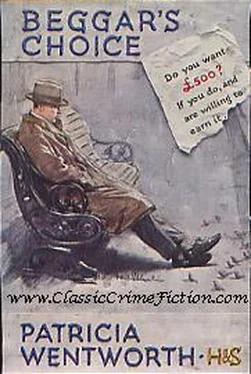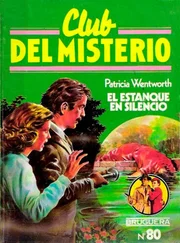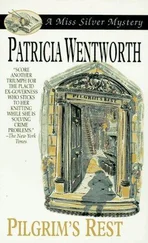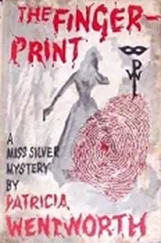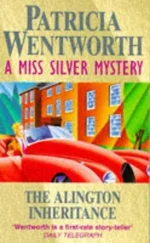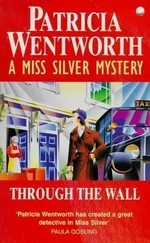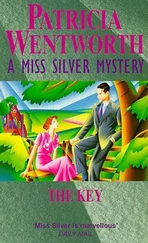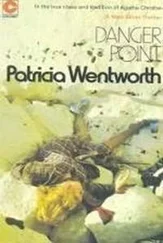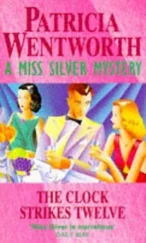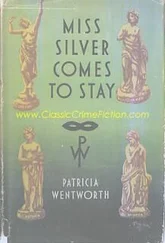Patricia Wentworth - Beggar’s Choice
Здесь есть возможность читать онлайн «Patricia Wentworth - Beggar’s Choice» весь текст электронной книги совершенно бесплатно (целиком полную версию без сокращений). В некоторых случаях можно слушать аудио, скачать через торрент в формате fb2 и присутствует краткое содержание. Жанр: Детектив, на английском языке. Описание произведения, (предисловие) а так же отзывы посетителей доступны на портале библиотеки ЛибКат.
- Название:Beggar’s Choice
- Автор:
- Жанр:
- Год:неизвестен
- ISBN:нет данных
- Рейтинг книги:5 / 5. Голосов: 1
-
Избранное:Добавить в избранное
- Отзывы:
-
Ваша оценка:
- 100
- 1
- 2
- 3
- 4
- 5
Beggar’s Choice: краткое содержание, описание и аннотация
Предлагаем к чтению аннотацию, описание, краткое содержание или предисловие (зависит от того, что написал сам автор книги «Beggar’s Choice»). Если вы не нашли необходимую информацию о книге — напишите в комментариях, мы постараемся отыскать её.
Beggar’s Choice — читать онлайн бесплатно полную книгу (весь текст) целиком
Ниже представлен текст книги, разбитый по страницам. Система сохранения места последней прочитанной страницы, позволяет с удобством читать онлайн бесплатно книгу «Beggar’s Choice», без необходимости каждый раз заново искать на чём Вы остановились. Поставьте закладку, и сможете в любой момент перейти на страницу, на которой закончили чтение.
Интервал:
Закладка:
“Good place for a safe-what?” he said, and Corinna clapped her hands. A square piece of the paneling opened like a door and showed a steel-lined cavity with three deep shelves.
It pleased Mr. Carthew enormously to have such an appreciative audience. He beckoned to Corinna to come nearer.
“And now for the Queen Anne bow! Why, bless my soul-the case ought to be just here-just on the left of the bottom shelf! And I’ll take my oath that’s where I put it. Now what the deuce-I beg your pardon, my dear.” His voice sharpened. “Anna, come here! Where’s that case! You saw me put it away. It’s always in that left-hand bottom corner.”
Corinna’s round eyes turned gravely from Cousin John, all flushed and stammering, to Anna. Anna was most extraordinarily pale. A moment ago she had had rather a bright color. It was all gone.
The ladder Mr. Carthew was using had three steps on either side. Anna mounted until she stood level with him. Corinna stared up at them both.
Anna said, “It must be there.” Her voice sounded as if she had been running.
“I tell you it’s not there! And I tell you I put it there myself-what-you saw me!”
“It must be there,” said Anna again. She leaned across him, looking into the safe. “Uncle John-oh, what a fright you gave me! There it is!”
“Where? I don’t see it.”
“There-on the right, by your hand-under the big, square case. Look!”
“And who put it there?” said Mr. Carthew angrily. “I’ll swear it wasn’t me. Who’s been messing the things about? Who-”
He pulled out the case with a jerk. It was very rubbed and shabby and old; the leather, which had once been scarlet, was now a dim pinkish brown; the gold crown on the lid could only just be distinguished, a mere tarnished hint of royalty.
Mr. Carthew turned round, still grumbling.
“I suppose you’ll say I’m losing my memory-but I never put it there, and that I’ll swear to.”
Anna stepped down. She did not say a word. She kept her eyes on the table.
“Oh, do show it to us!” said Corinna.
Mr. Carthew came down too. He opened the case, and the case was empty.
The library seemed to fill with silence. It was like water rushing into an empty place.
Mr. Carthew and Corinna both looked at what he had in his hand. The case had a satin lining, the white of which had turned to a yellowish brown. The outline of a loosely shaped bow was marked upon it, both by the dinting of the satin and by a deeper discoloration. Two brownish hollows marked the places of those emeralds which Mr. Carthew had described as worth a lot of money. From their size, he did not seem to have been guilty of overstatement.
Anna looked too, and then looked away.
Corinna spoke first. She said in a whisper,
“It’s gone!”
And then, to her own surprise, her legs began to tremble so much that she looked round for a chair and sat down abruptly.
“What’s it mean?” said Mr. Carthew in an odd, troubled voice.
Then, with sudden passion, “What’s it mean? Anna!” The word came out with explosive force. Then, checking himself, he advanced to the table and put down the empty case.
As if his voice, speaking her name in that sharp peremptory way, had called her from the wings where like many another actress she had been standing dumb with stage-fright, Anna started, drew on that sense of drama which never left her for very long, and took up her part. It was the first step, the first plunge, that stopped one’s breath and set one’s heart thudding. She heard herself say, “It must be there,” and approved the low shocked tone that contradicted the assertion.
It was she who rummaged in the safe, handing things down to Corinna until nothing more remained, whilst John Carthew stood half turned away, looking, still looking, at the empty case.
When the safe had been cleared, he roused himself and displayed a sudden energy. Everything was to be put back, the safe re-locked, the picture hung, the blinds drawn up.
When the sun was slanting in again, he slipped the case into his pocket. He looked older. His sudden energy had failed. He leaned with one hand on the table.
“What are you going to do?” said Corinna, and Anna blessed her for the question. In another moment she would have had to ask it herself.
“Do?” said Mr. Carthew. “Do? The thing’s an heirloom. It’s got to be found.” He straightened himself up as if his own loud voice had encouraged him. “What do we have police for? If we have got a Socialist government, we haven’t got to the point where a burglar can break into my safe and take a family heirloom and get away with it-no, by jingo, we haven’t, though that’s where we’re heading for! Thank God, I shan’t be here to see it! Law and order’ll last my time, and an heirloom’s an heirloom. It don’t belong to me-it belongs to all the Carthews-it belongs-” His voice had been dropping; now it ceased.
Corinna thrilled to the broken sentence. Was it Car’s name that had broken it? Anna knew that it was, and a rising passion swept away her last qualm.
“You can’t call in the police,” she said in a hard, dogmatic tone.
Mr. Carthew stiffened at once.
“I can’t-what? And why not?”
Corinna saw his angry flash, and remembered Car saying, “He’s all right as long as you don’t cross him. He likes his own way.” Funny that Anna shouldn’t have known better than to lay down the law to him like that, and to keep on doing it in the face of his rising anger.
“It will make such a talk.”-Anna, pale and shrinking.
“And why the deuce should I care about that?”-Cousin John, the very image of the old squire who is just going to turn an erring daughter out into the snow.
“But, Uncle John, you can’t!”
“And why can’t I? And whose business is it except my own?”
“You mustn’t!”
“Mustn’t I-what?”-and a snort of wrath and the click of the telephone.
Corinna, standing back against the mantelpiece, a little abashed at this frank lapse into family manners, turned a pitying glance on Anna. Cousin John had just sworn-yes, really sworn at her. She received a shock, because, just for an instant as the angry man shouted into the telephone, a fleeting look changed Anna’s shocked pallor into something else and Corinna thought that the something else was triumph.
XXXII
Miss Willy Tarrant lived in a dumpy brick house exactly half-way down the village street. The original small casements of the two front rooms having been replaced by generous bow windows Miss Willy commanded a view of practically every front door in Linwood. She knew at once when Dr. Monk had been sent for to a case, or when the Vicar, to whom time meant nothing, was going to be late for church. She could follow him from a few feet within his own hall door all the way to the vestry, and if the vestry door had been left open, she would have been able to watch him robing. This from the dining-room.
The drawing-room afforded her a perfect view of the interior of the local grocery, a partial one of old Mrs. Hoylake’s parlor, and, if she leaned out, an opportunity of seeing Linwood buy its Saturday joints from Mr. Brown the butcher.
Very little went on in Linwood about which Miss Willy did not know at least as much as the people immediately concerned. Sometimes it might be said that she knew a good deal more. She could certainly tell the Vicar just what was wrong with his sermons, and how to improve them; whilst she never met Dr. Monk without contending for the superior efficacy of some specific of her own. She had a finger in every pie, and a better way of baking it than the one which you had always thought quite good enough.
On the morning after Mr. Carthew’s wedding-day anniversary Miss Willy was in her dining-room cleaning the cages inhabited respectively by a pink and gray parrot called Archibald, a pair of small, green parakeets, a very large and highly colored macaw, an invisible dormouse, and an elderly and partially bald, white rat. Whilst the cages were being cleaned, their tenants disported themselves about the room, with the exception of the dormouse, who remained obstinately in seclusion, although he should not have begun to think about hibernating for an least another month.
Читать дальшеИнтервал:
Закладка:
Похожие книги на «Beggar’s Choice»
Представляем Вашему вниманию похожие книги на «Beggar’s Choice» списком для выбора. Мы отобрали схожую по названию и смыслу литературу в надежде предоставить читателям больше вариантов отыскать новые, интересные, ещё непрочитанные произведения.
Обсуждение, отзывы о книге «Beggar’s Choice» и просто собственные мнения читателей. Оставьте ваши комментарии, напишите, что Вы думаете о произведении, его смысле или главных героях. Укажите что конкретно понравилось, а что нет, и почему Вы так считаете.
